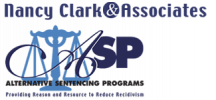

Our affordable TRC program offers the following:
Discussion group is a group that allows our clients to express their opinions on various topics, learn about others opinions, and maybe find solutions through intrapersonal communication.
Meditation: You will be walked through various techniques of meditation. The mind is usually restless. By subduing its waves, it becomes quiet. When the mind is quiet the body is quiet too. Meditation is not different from any other method of training. To succeed, you need perseverance, inner strength, ambition and faith.
Anger Management refers to techniques and exercises in which the client can learn to reduce the triggers, degrees, and effects of an angered emotional state. Some can include relaxation techniques, cognitive restructuring, problem solving, and improving communication skills.
Brain Exercises: Many studies have been done regarding post-acute withdrawal and the damage that has been done to the brain as a result of substance abuse. We have the ability to work out our brain just like any muscle in our body. The brain exercises group is designed for that purpose alone. It can entail logic problems, memory games, and other various activities that require brain power.
Self-Esteem Workshop: This workshop is designed to identify biased expectations, negative self-evaluations, irrational beliefs, self-defeating behavior, and various thought patters that all lead to low self-esteem. This group will work on various practices such as integrity, self-acceptance, self-responsibility, awareness, assertiveness, and learning to live with purpose. Self-Esteem has two interrelated components which are self-efficacy and self-respect. Self-efficacy has to do with confidence. Confidence in my ability to think, confidence in my ability to solve simple problems, difficult problems, find employment, maintain a healthy relationship, etc. Much of the work that is needed on self-esteem can be worked through with life skills.
Recovery and Discharge Planning: From the moment you come into the program, we are preparing and planning for your discharge. We will be searching for the specific things that will work for you based on your interests, effort, motivation, and goals.
Relapse Prevention: This is a cognitive behavioral approach with the goal of identifying and preventing high risk situations. Drugs and alcohol are not going away, so it’s important to learn to live in a world where it’s at and not have to do it yourself. We will identify triggers, early warning signs of relapse, and create an individuated relapse prevention plan that will fit your specific needs. Relapse prevention planning is key to long term sobriety. It entails looking at your thoughts, feelings, behaviors, attitudes, and motivation. Lack of emotional control is one of the quickest ways for people to relapse. Anger and resentments are at the top of the list. It is important that we maintain an “I care” attitude.
Acupuncture is a method used in Oriental Medicine for restoring balance within the body. When there is imbalance, there can be lethargy, anxiety, decreased function and mobility, pain, and organ dysfunction. In western terms, acupuncture works by releasing endorphins, a natural morphine-like substance in our central nervous system and gastrointestinal tract.
Yoga is a vast collection of spiritual techniques and practices aimed at integrating mind, body and spirit to achieve a state of enlightenment or oneness with the universe. Though yoga’s ultimate aim is lofty, its essence is practical and scientific as it emphasizes direct experience and observable results.
Speaker Meeting: It is good to hear a speaker who has been where you are and has changed his or her life for the better.